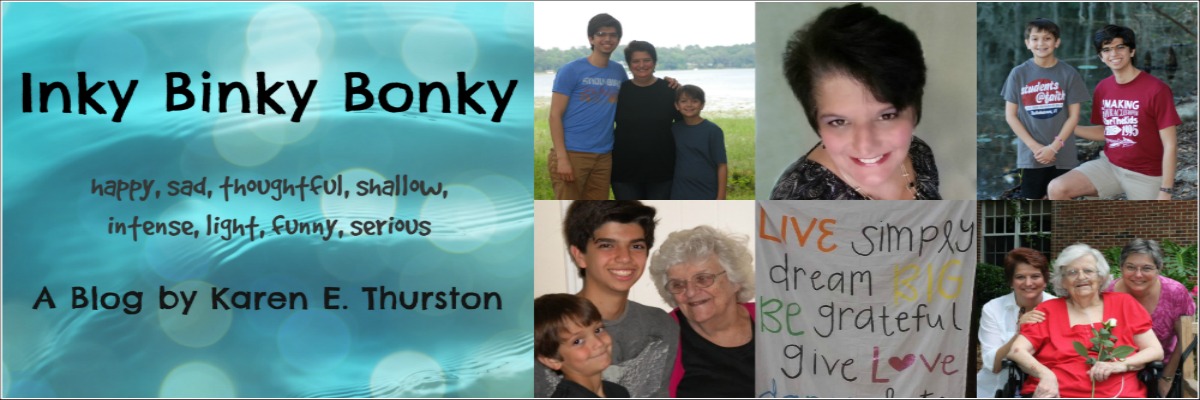I did it when my 14-year-old son was a baby. And I was doing it now. Holding my breath. Praying. Watching the pediatrician’s face. He was listening to my 4-month-old son’s heart and lungs during a routine well-baby check-up.
One minute. Two minutes. My son’s chest. His back. Three minutes. Four minutes. His chest. His back again. This is taking too long. He is listening to my baby’s heart too long. I closed my eyes and prayed.
The doctor rolled back his chair to look at me. I looked at him, thinking, praying ... Don’t say it. Please don’t say it.
“I hear a murmur.” He said it.
I pulled my son, William, tighter to my chest.
“Most of the time, these things turn out to be nothing, Ms. Chavez,” the pediatrician gently told me. “But this sounds significant; I’m afraid this is going to turn out to be something.”
“I’m going to refer you to a pediatric cardiologist,” the doctor explained.
My own heart dropped. There was a problem with my baby’s heart. His heart.
I wanted to rewind that day. July 30, 2004. It had been just a normal day. Now it was anything but.
“If this is something,” I asked the nurse practitioner on my way out, “what do I look out for? How will I know if something has happened or has gone wrong?”
“He’ll have trouble breathing, he’ll look blue,” she answered in a hurry as she went to see another patient. But she looked sad.
That was it? That wasn’t nearly enough information. I was terrified. I cried all the way home from the doctor’s office. I reached toward the backseat, trying to hold William’s hand. I realized I had to tell my husband our infant son has a heart murmur and needs to see a pediatric cardiologist.
The innocence and naïve joy of having a new baby were gone. Everything changed that day. Our lives were never going to be the same.
Unfortunately, the "pediatric cardiologist" we were referred to in Tallahassee was not board certified. The eight-month-long road to a correct diagnosis was rife with potholes and detours. We spent five months in the hands of physicians who were poor listeners and even worse diagnosticians. The local "pediatric cardiologist" twice failed to correctly diagnose William's heart defect.
It was a fearful, heartbreaking, stressful time. William was never well. I developed Bell’s palsy that September and my 16-year-old nephew was killed in a car crash five days before Christmas.
After that, getting William well took on new meaning and our efforts to do it amplified. We “fired”’ our pediatricians and found a new one. One who listened, examined and treated carefully, methodically and cautiously.
William’s correct diagnosis – scimitar syndrome, a rare variation of partial anomalous pulmonary venous return – came just days before his first birthday. (William's version of scimitar syndrome includes an underdeveloped right lung that receives no blood flow; he functions entirely on his left lung. He also right pulmonary vein stenosis, mild right ventricular hypertrophy and superior vena cava stenosis.) The diagnosis was the result of the divine meeting of the medical minds of two thorough and thoughtful physicians.
The first thorough and thoughtful physician was our new pediatrician who had immediately questioned and investigated the diagnosis that William’s heart murmur was functional. He thought it sounded pulmonary and was concerned because he could hear the murmur in William’s back. Functional murmurs, he said, typically can only be heard through the chest.
The second brilliant mind was a pediatric radiologist who had read two sets of William’s chest X-rays – four months apart – and noticed the same problem in each: William’s lungs were unequal in size and function. Of all the patients that pediatric radiologist sees in the hospital and in his radiology practice – and he remembers my son and these minute details of his lungs. That still amazes me.
Once William was diagnosed, we were referred to the UF Health Congenital Heart Center in Gainesville. That's when everything started to get better. We learned so much about William's particular condition and we no longer feared that he would drop dead while he was running in the yard with his brother. And wonderfully, at UF Health, we continued to find doctors who listened, examined and treated carefully, methodically and cautiously.
I hug, kiss and tell my children every day that I love them. I stare at them and marvel at their beings, their health and their lives. I will never forget William’s four-month, well-baby check up and hearing those words “heart murmur.”
 Those words and all the days that have followed have changed our lives forever. I would not have believed it then, but I know now, they have changed for the better. Our family is a stronger family. We appreciate our lives in ways we never did before. We have an incredible team of physicians for William's continued care. We have met hundreds of families online and in real life who have similar experiences as ours. We have William's heart to thank. We didn't think it then, but we know now, we wouldn’t have William’s heart any other way.
Those words and all the days that have followed have changed our lives forever. I would not have believed it then, but I know now, they have changed for the better. Our family is a stronger family. We appreciate our lives in ways we never did before. We have an incredible team of physicians for William's continued care. We have met hundreds of families online and in real life who have similar experiences as ours. We have William's heart to thank. We didn't think it then, but we know now, we wouldn’t have William’s heart any other way.Updated: Feb. 3, 2018.

